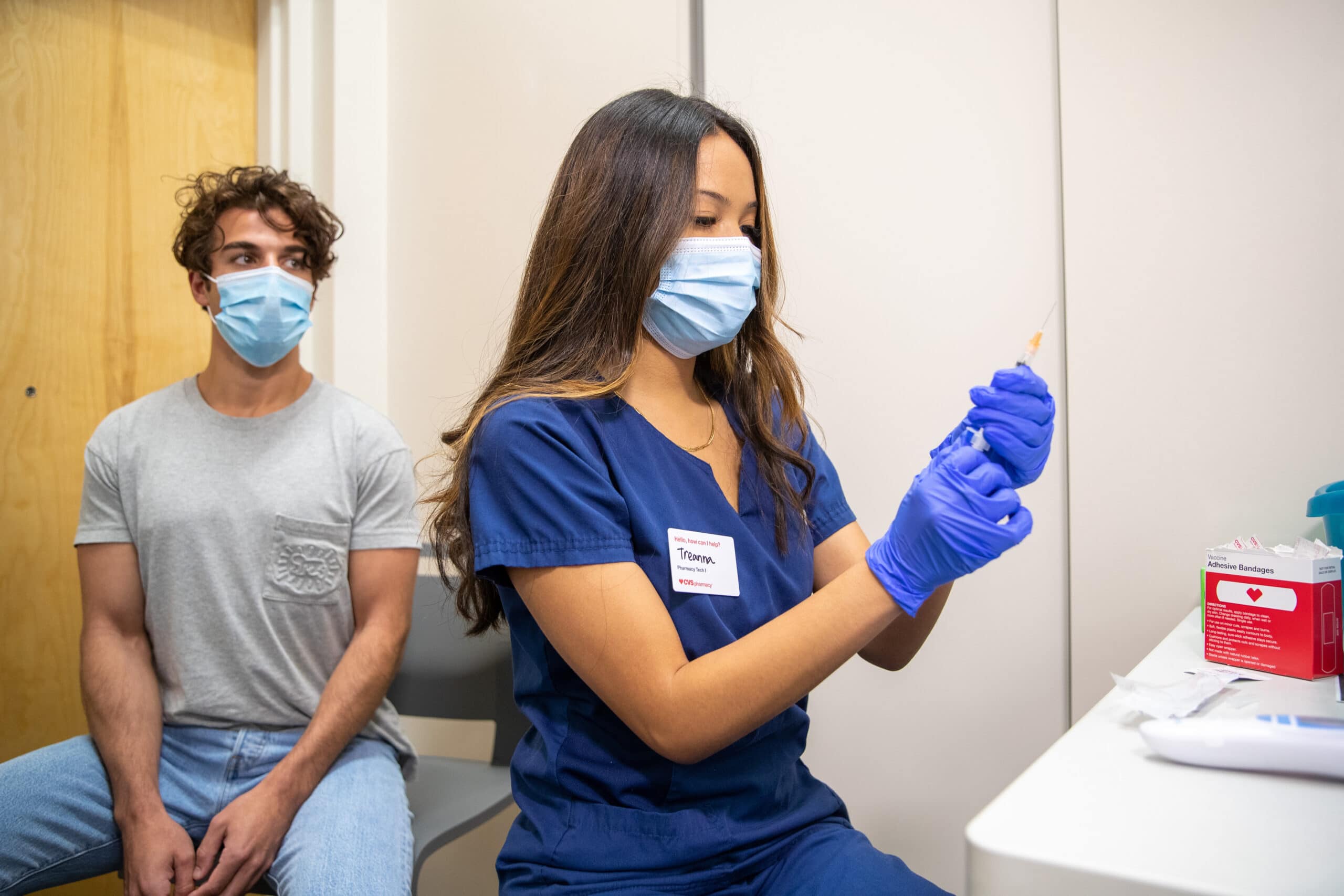Introduction
As the flu season approaches each year, many people turn to their local pharmacies for convenient access to flu shots. Among these, CVS has emerged as a leading provider, offering flu vaccinations across its numerous locations. This article delves into everything you need to know about getting a flu shot at CVS, from scheduling an appointment to understanding the flu vaccine’s benefits and potential side effects.
Understanding the Importance of Flu Shots

Health experts recommend the annual flu vaccine as a critical measure in preventing influenza, a potentially severe disease that can lead to hospitalization and sometimes even death. Every flu season is different, and the flu affects everyone differently. Still, millions of people get the flu yearly, hundreds of thousands of people are hospitalized, and thousands to tens of thousands die from flu-related causes annually. Vaccination has been shown to have many benefits, including reducing the risk of flu illnesses, hospitalizations, and even flu-related death in children.
The CVS Flu Shot Experience
CVS Pharmacy, a subsidiary of CVS Health, is one of the largest pharmacy chains in the United States. It offers flu shots to individuals as part of its commitment to public health. When you decide to get your flu shot at CVS, you’re receiving a vaccine and the convenience and expertise of their healthcare professionals.
- Scheduling Your Appointment: CVS has made scheduling flu shots incredibly straightforward. You can book an appointment online through the CVS website or the CVS Pharmacy app. Alternatively, walk-in appointments are also welcome, making it easier for those with unpredictable schedules.
- What to Expect at Your Appointment: Upon arriving at CVS for your flu shot, you’ll be asked to complete a brief medical questionnaire. This is to ensure the vaccine is safe based on your medical history, allergies, and any medications you might be taking. Afterward, a trained healthcare professional will administer your flu shot, usually in the upper arm. The process is quick, typically taking just a few minutes.
- After Your Vaccination: It’s common to experience mild side effects after receiving a flu shot, such as soreness at the injection site, low-grade fever, or muscle aches. These symptoms are generally mild and resolve without treatment within a few days. They are a sign that your body is building protection against the flu.
Types of Flu Vaccines Available at CVS

CVS offers a range of flu vaccines to cater to the diverse needs of its customers. Understanding the differences can help you choose the most suitable option for you or your family members:
- Standard Dose Flu Shots: The standard dose flu vaccine is the most commonly administered vaccine, suitable for most people aged between 6 months and 64 years. This vaccine protects against three or four flu viruses, depending on the formulation available.
- High-Dose Flu Shots: Specially formulated for people 65 and older, the high-dose vaccine contains four times the antigen compared to the standard dose. This higher dosage is designed to create a more robust immune response in older adults at greater risk for severe illness from the flu.
- Egg-Free Vaccines: CVS recognizes the needs of individuals with egg allergies and offers egg-free flu vaccines. These vaccines are made using a process entirely independent of egg proteins, making them safe for those with egg allergies.
- Nasal Spray Flu Vaccine: Ideal for those who are wary of needles, the nasal spray flu vaccine is a needle-free option for people aged 2 through 49. However, it’s not recommended for pregnant women, individuals with certain medical conditions, or those with weakened immune systems.
- Quadrivalent Flu Vaccine: The quadrivalent flu vaccine is designed to protect against four different flu viruses: two influenza A viruses and two influenza B viruses. This broader spectrum of protection can be particularly beneficial during flu seasons when multiple strains are circulating.
- Pediatric Flu Vaccine: Specifically formulated for young children, these vaccines are available in smaller doses and are suitable for children between 6 months to 18 years old. They are designed to cater to the developing immune systems of children and adolescents.
- Cell-Based Flu Vaccines: Cell-based flu vaccines are produced as an alternative to the traditional egg-based manufacturing process. These vaccines are a good option for those with severe egg allergies and for whom egg-free vaccines are unsuitable.
By offering various flu vaccines, CVS caters to the unique health needs of different age groups, health conditions, and personal preferences. The pharmacists at CVS are equipped to provide guidance on which vaccine is most appropriate for each individual, ensuring everyone can receive the best protection against the flu.
Insurance and Payment Information
Most insurance plans cover flu shots at no extra cost to you. CVS accepts a wide range of health insurance plans, which means that you can get vaccinated in many cases without any out-of-pocket expense. CVS offers competitive pricing for flu shots for those without insurance, ensuring more people have access to this critical vaccine.
The Role of CVS in Public Health

CVS plays a significant role in public health through its extensive flu shot program. By making flu shots easily accessible in communities nationwide, CVS helps reduce the spread of influenza. This is particularly important for high-risk groups such as the elderly, young children, and those with chronic health conditions. The availability of flu shots at CVS pharmacies contributes significantly to higher vaccination rates and lower impact of the flu season.
Frequently Asked Questions
Do I need to make an appointment for a flu shot at CVS?
While franchises are recommended and can be quickly scheduled online, CVS welcomes walk-in patients for flu shots.
How long does it take for the flu vaccine to become effective?
It typically takes about two weeks after vaccination for antibodies to develop in the body and provide protection against the flu.
Can I get a flu shot at CVS if I’m pregnant?
Yes, flu shots are safe for pregnant women and are recommended by health professionals. It’s always a good idea to consult with your healthcare provider beforehand.
Does CVS offer flu shots for children?
Yes, CVS provides flu shots at most locations for children aged 18 months and older.
Conclusion
Getting a flu shot at CVS is a convenient and effective way to protect yourself and your loved ones from the flu. With its easy-to-use scheduling system, various vaccine options, and accessible locations, CVS is helping to make flu prevention more attainable for everyone. Remember, getting vaccinated protects you and helps safeguard your community’s health by reducing the spread of the virus. This flu season, consider CVS as your go-to destination for flu shots.

